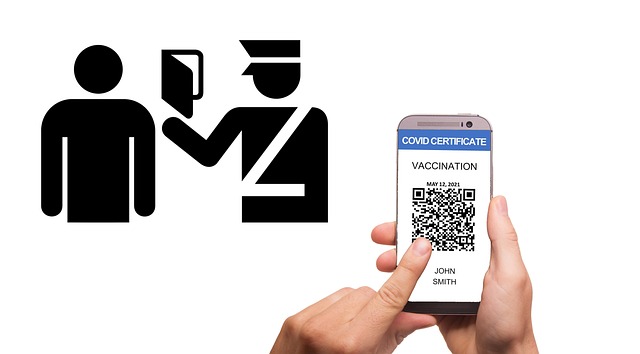The importance of ethical guidelines in global business is highlighted, emphasizing their necessity for companies with operations in diverse jurisdictions. The UK Code of Conduct and Ethics requires precise and culturally sensitive translations to maintain its integrity when adapted into multiple languages. Specialized translation services play a crucial role in this process by ensuring that the ethical principles are accurately conveyed and legally compliant across different cultures. These services, offering certified translations, protect company reputations and facilitate clear understanding and implementation of ethical standards worldwide. By investing in such translation services, companies not only demonstrate transparency and accountability but also show their commitment to upholding ethical business practices on an international scale, thereby enhancing stakeholder trust and ensuring compliance with local regulations. The case study presented underscores the effectiveness of UK Code of Conduct and Ethics translation services in achieving these objectives.
Navigating the complexities of global business requires a commitment to ethical practices, a cornerstone for sustainable operations and compliance. This article delves into the critical role of certified translation services in conveying the UK Code of Conduct and Ethics across linguistic boundaries. We will explore the significance of accurate translations, the specifics of the UK Code, the challenges faced when localizing ethical guidelines, and the benefits of engaging professional translation services. From the intricacies of the translation process to real-world case studies, this piece underscores the indispensable nature of precise language in upholding business integrity worldwide.
- Understanding the Importance of Ethical Guidelines Translation
- Overview of the UK Code of Conduct and Ethics
- The Role of Certified Translation Services in Business Compliance
- Key Elements of Ethical Guidelines as Per the UK Code of Conduct
- Challenges in Translating Ethical Guidelines Across Languages
- The Process of Obtaining a Certified Translation of Ethical Documents
- Benefits of Using Professional Translation Services for Ethical Guides
- Case Study: Successful Implementation of UK Code of Conduct Translation in an International Business
Understanding the Importance of Ethical Guidelines Translation

In an increasingly globalized business landscape, the significance of ethical guidelines cannot be overstated. These directives serve as a moral compass for companies, guiding them towards responsible practices that align with societal values and legal requirements. For businesses operating in multiple jurisdictions, such as those in the UK, translating the Code of Conduct and Ethics into languages that are accessible to all stakeholders is not just a mere formality but a critical component of compliance. Accurate translations ensure that ethical standards are upheld universally, facilitating transparency and trust across international borders. This is where specialized translation services excel; they provide culturally relevant and precise renditions of the UK Code of Conduct and Ethics, making it possible for companies to maintain a consistent ethical stance everywhere they do business. Such translations are indispensable for multinational corporations that aim to operate with integrity and uphold ethical standards in diverse cultural contexts, thereby fostering an environment of trust and accountability.
The process of translating ethical guidelines, like the UK Code of Conduct and Ethics, requires not only linguistic expertise but also a deep understanding of the cultural nuances that can affect meaning. Professional translation services specializing in compliance documentation are adept at navigating these complexities, ensuring that the original intent and context are preserved in every translated version. This precision is crucial for avoiding misunderstandings or misinterpretations that could lead to legal complications or reputational damage. By choosing trusted UK Code of Conduct and Ethics translation services, businesses can confidently communicate their commitment to ethical practices to employees, partners, regulators, and customers worldwide, thereby reinforcing their reputation as a responsible entity in the global marketplace.
Overview of the UK Code of Conduct and Ethics

The UK Code of Conduct and Ethics serves as a cornerstone for business integrity and compliance, guiding organisations in navigating ethical dilemmas and promoting responsible practices. This code is an essential document for entities operating within the United Kingdom, ensuring that businesses adhere to the highest standards of moral conduct. It encompasses principles that foster trust between companies and the public, emphasising the importance of transparency, honesty, and integrity in all aspects of business operations. Companies must ensure that their internal processes and external communications align with these ethical guidelines.
For businesses with international operations, the necessity for certified translations of the UK Code of Conduct and Ethics becomes paramount. Language barriers should not impede an organisation’s commitment to ethical practices; thus, professional translation services specialising in legal and compliance documents are instrumental. These services bridge cultural and linguistic divides by providing accurate translations that convey the intent and spirit of the original text. This enables companies to uphold their ethical standards across diverse markets, ensuring consistency and reliability in their global operations. By leveraging UK Code of Conduct and Ethics translation services, businesses can effectively communicate their commitment to ethical conduct to all stakeholders, regardless of language or geography.
The Role of Certified Translation Services in Business Compliance

In the realm of international business, adherence to ethical guidelines is paramount for maintaining integrity and trust across different markets. The UK Code of Conduct and Ethics serves as a cornerstone document for businesses seeking to align their practices with the highest standards of ethical behavior. However, the effectiveness of this code is contingent upon its accurate translation into the languages of all stakeholders involved. Certified translation services play a crucial role in this process by ensuring that the principles outlined in the UK Code are faithfully conveyed in various languages, thereby facilitating global compliance and understanding. These professional services not only translate text but also provide certified translations that are legally recognized and carry the authority of having been verified for accuracy by professional linguists. This certification is essential for businesses operating internationally, as it confirms that the translated content reflects the original document’s meaning, which is critical when ensuring compliance with local regulations and ethical standards. By leveraging UK Code of Conduct and Ethics translation services, companies can navigate multilingual environments with confidence, knowing their commitment to ethical practices is communicated clearly to all parties concerned. This not only fosters a culture of transparency but also supports businesses in upholding their reputation for integrity on an international scale.
Key Elements of Ethical Guidelines as Per the UK Code of Conduct

In the realm of business operations, adherence to ethical guidelines is paramount for maintaining integrity and trust. The UK Code of Conduct serves as a foundational document that outlines the key elements necessary for ethical business practices. It emphasizes honesty, fairness, and impartiality in all dealings, ensuring that business decisions are made with the best interests of the stakeholders in mind. This code extends to relationships with suppliers, customers, competitors, and governmental bodies, advocating for transparent and responsible conduct. To facilitate understanding and application of these principles across different linguistic and cultural contexts, ethics translation services play a crucial role. They ensure that the UK Code of Conduct is accurately conveyed in various languages, thereby making its ethical standards accessible to a global audience. This translation process not only involves the precise conversion of text but also the careful adaptation of language to align with local customs and legal requirements, ensuring the authenticity and relevance of the code’s content.
Furthermore, the UK Code of Conduct mandates that all organizations within its purview must have a clear policy on bribery and corruption, as well as establish robust systems to prevent, detect, and address any such issues. This involves regular training for employees, stringent financial controls, and an open reporting structure that encourages the disclosure of any unethical practices. The provision of certified translation services is instrumental in this regard, as it enables organizations operating internationally to communicate these anti-bribery and corruption policies effectively across their global operations. By ensuring that ethical guidelines are available in the local languages and are culturally appropriate, businesses can navigate complex international environments with greater confidence and accountability.
Challenges in Translating Ethical Guidelines Across Languages

The process of translating ethical guidelines, such as the UK Code of Conduct and Ethics, poses a unique set of challenges that extend beyond the linguistic nuances of different languages. Translation services must navigate the complexities of cultural context and legal compliance to ensure that the core principles of ethics are accurately conveyed across cultures. Ethical guidelines often contain abstract concepts that may not have direct equivalents in other languages, requiring translators to find equivalent expressions that carry the same ethical weight. Moreover, the interpretation of what constitutes ethical behavior can vary significantly between societies, necessitating a deep understanding of both the source and target cultural contexts. This is particularly critical when dealing with legal documentation, where an incorrect translation could lead to misinterpretation and non-compliance with local regulations. To mitigate these challenges, translation services must employ experts who are not only linguistically proficient but also knowledgeable about the ethical frameworks and business practices within each respective jurisdiction. This ensures that the translations of documents like the UK Code of Conduct and Ethics are both accurate and actionable for businesses operating internationally. The integrity of these translations is paramount, as they serve to uphold ethical standards and foster trust in global markets.
The Process of Obtaining a Certified Translation of Ethical Documents

When businesses operating in multinational contexts require ethical guidelines, such as the UK Code of Conduct and Ethics, to be translated into another language, they must engage certified translation services to ensure accuracy and compliance. The process of obtaining a certified translation begins with selecting a professional translator or a reputable translation agency with expertise in legal and ethical documents. These experts are not only fluent in the source and target languages but also well-versed in the nuances of business ethics. Once a service provider is chosen, the actual translation process commences, where the text is meticulously translated word for word, maintaining the original intent and meaning.
Upon completion of the initial translation, the document undergoes a thorough review and comparison against the original ethical guidelines to verify its accuracy. This is a critical step to ensure that all ethical considerations are accurately conveyed in the target language. The final translated document is then signed and stamped by a certified translator, attesting to the authenticity and exactness of the translation. In the UK, this certification is legally recognized and often necessary for legal or regulatory compliance, particularly when the business is submitting these documents to government bodies, financial institutions, or international partners. This ensures that the ethical guidelines, as per the UK Code of Conduct and Ethics, are not only accessible in multiple languages but also carry the same weight and authority, upholding the company’s commitment to ethical standards worldwide.
Benefits of Using Professional Translation Services for Ethical Guides

In an increasingly globalized business environment, adherence to ethical guidelines is paramount for maintaining integrity and trust across different markets. When a company’s operations extend beyond its home country, such as from the UK to international territories, it becomes crucial to communicate these ethical standards effectively in all languages involved. Professional translation services specializing in the UK Code of Conduct and Ethics translation services offer a robust solution to this challenge. These services ensure that the nuances and complexities inherent in ethical guidelines are accurately conveyed in multiple languages, thereby preserving the original intent and meaning. By leveraging the expertise of seasoned translators who are often well-versed in both legal and ethical terminology, businesses can be confident that their codes of conduct are not only linguistically correct but also culturally appropriate, which is essential for compliance and acceptance in diverse corporate cultures. This meticulous approach not only safeguards a company’s reputation but also facilitates seamless understanding and implementation of ethical standards across its global workforce, thereby enhancing overall business compliance and operational integrity.
Moreover, the benefits of using professional translation services for ethical guides extend beyond linguistic precision. These services often provide additional value through expertise in localization, which adapts content to fit the cultural context of the target audience. This is particularly important when dealing with sensitive subjects within ethical guidelines. Professional translators can ensure that the UK Code of Conduct and Ethics translation accurately reflects the moral framework and expectations of the company, while also being culturally sensitive to the norms and values of the region it is being translated into. This cultural alignment is critical for business operations in countries where local customs and legal requirements dictate a high regard for ethical conduct. Thus, investing in professional translation services not only demonstrates a commitment to transparency and accountability but also showcases a company’s dedication to respecting and understanding the diverse societies in which it operates.
Case Study: Successful Implementation of UK Code of Conduct Translation in an International Business

In the realm of international business, adherence to local and global ethical standards is paramount for sustainable operations and reputation management. A notable case study in this vein involves a multinational corporation’s successful implementation of the UK Code of Conduct translation into its overseas operations. Recognizing the importance of ethical integrity across all business functions, the company engaged specialized UK Code of Conduct and Ethics translation services to ensure that the principles outlined in the original document were accurately conveyed in the target language. This meticulous approach not only facilitated a seamless integration of ethical practices within the international workforce but also demonstrated the company’s commitment to upholding universal business ethics. The translations were conducted by professionals who possess both linguistic expertise and an understanding of cultural nuances, ensuring that the meaning remained consistent and clear. As a result, the company was able to maintain a cohesive ethical framework that spanned its operations, fostering trust with stakeholders and aligning with local legal requirements. This case exemplifies the value of expert translation services in navigating the complexities of global business ethics, thereby enabling companies to uphold their ethical standards universally.
In conclusion, the translated versions of the UK Code of Conduct and Ethics serve as a critical tool for businesses operating on an international scale. They bridge cultural and linguistic gaps, ensuring that ethical standards are universally understood and upheld. The meticulous process of obtaining certified translations, as outlined in this article, underscores the importance of accuracy and professionalism when conveying these guidelines to diverse audiences. By leveraging specialized translation services, companies can navigate global markets with confidence, adhering to legal requirements and fostering a culture of integrity and compliance. The case study presented demonstrates the tangible benefits of such translations in real-world business scenarios. As businesses continue to expand their reach, the role of certified translation services in relation to ethical guidelines becomes ever more significant, paving the way for responsible global operations.



